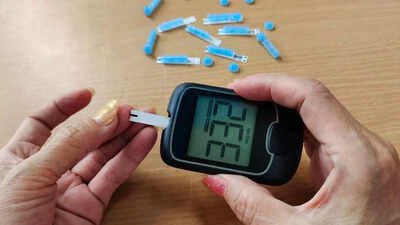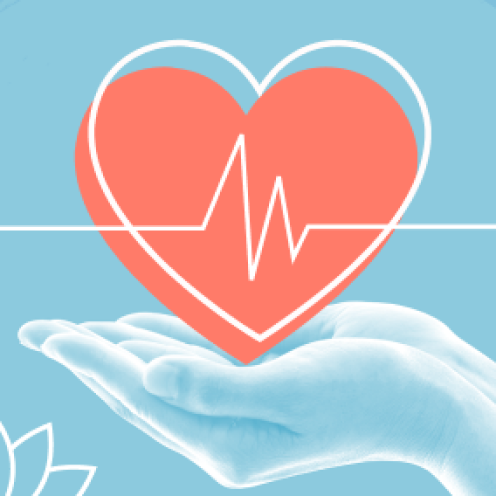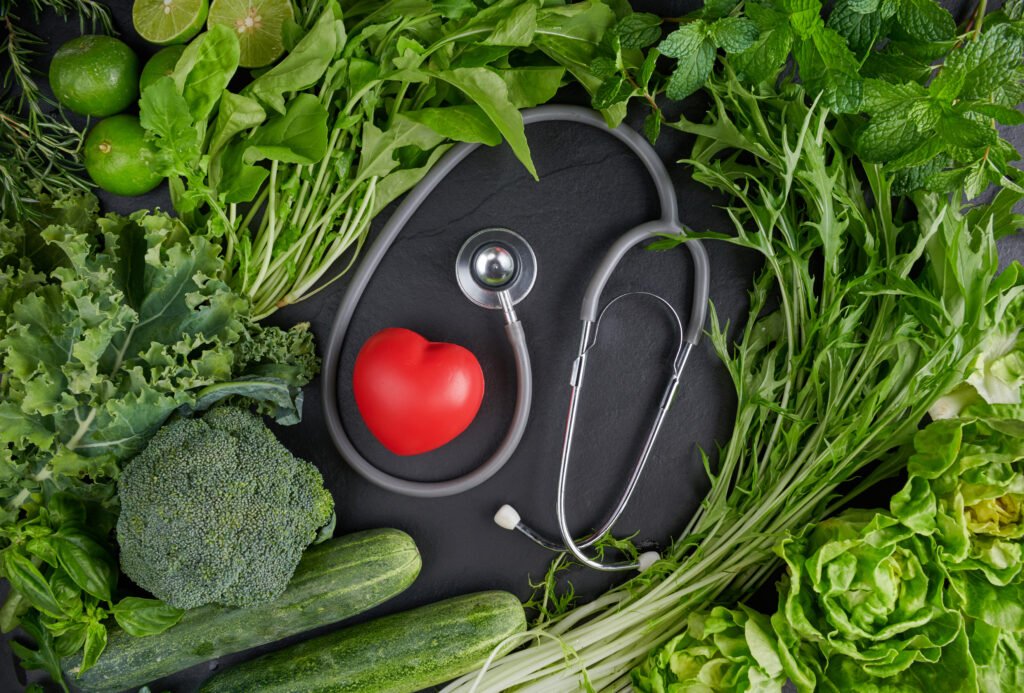Newsday

Bavina Sookdeo
When it comes to cancer prevention, treatment and recovery, diet plays a far more significant role than many people may realise.
Surgical oncologist Dr Rajen Rampaul says there is increasing evidence and scientific data to show that what we eat is very important not only in reducing cancer risk and recurrence, but also in preventing cancer.
Rampaul pointed out that regulatory bodies like the International Agency for Research on Cancer have classified certain foods, particularly red meat, as class-one carcinogens.
“This was first linked to colorectal cancer,” he said, “but there is now good data to suggest it is also linked to the development of some breast cancers.”
Addressing the abundant online information about so-called anti-cancer diets and supplements, Rampaul cautioned that much of it can be misleading. He emphasised that medical guidance should always be grounded in evidence-based research rather than anecdotal claims or internet trends.
“There is a lot of information out there,” he said, “and some of it can be misleading. As doctors, we must focus on where evidence and advice are drawn from – evidence-based studies.”
Dos and don’ts
Beyond what we eat, how we prepare our food also matters, he said. Cooking with high heat – such as grilling – can introduce carcinogens, while whole, plant-based diets such as the Mediterranean or vegetarian patterns have been associated with longer, healthier lives.
“When we look at certain cultural regions such as Japan and the Mediterranean, we do see a much higher incidence of longevity.
“Scientific studies show that over 50 per cent of breast cancers can be preventable from just diet alone.”
He also highlighted anti-oestrogen foods such as soy, beans, spinach, flax seeds and turmeric as especially beneficial.
He said while certain foods are indeed recognised as anti-cancer or cancer-preventing thanks to their nutrient composition, their value lies in supporting an overall healthy lifestyle, and, in some cases, reducing the risk of recurrence in patients who have been treated for breast cancer.
Foods which promote a high-oestrogen environment may increase the likelihood of cancer recurrence, he warned, and should therefore be minimised or eliminated.
Diets such as the Pritikin diet, he added, have demonstrated benefits as part of a holistic cancer-preventive approach that combines balanced nutrition, lifestyle changes and medical oversight.
In addition, he pointed to the growing evidence supporting fasting as part of a healthy lifestyle.
“In a 2020 study, intermittent fasting was shown to boost the immune system. This is a very important component of the body’s own policing system that helps prevent breast cancer through its natural defence mechanisms.”
Bad habits to break
Equally important, he noted, is the absence of specific items from one’s diet as a means of preventing breast cancer.
While animal protein and fats are protein sources, they have also been associated with elevated cancer risk.
“When cooked, animal proteins and fats can increase IGF-1 (a hormone similar to insulin, which promotes cell growth and proliferation and is essential for childhood growth and development in adults) and oestrogen levels, both of which raise breast-cancer risk,” he said.
Rampaul added that saturated fats contribute to inflammation – a known factor in cancer development – and that such foods are a source of aromatase, an enzyme that increases oestrogen and fuels over 80 per cent of breast cancers.
“Leptin, present in animal fat, acts as a cancer stimulant,” he said. “It increases insulin resistance and IGF-1 levels, all part of the carcinogenic pathway.”
Rampaul also emphasised that good nutrition involves not only what we eat, but also what we avoid. The absence of smoking and alcohol, he said, is crucial in reducing cancer risk.
Advice on eating local
Asked about local or culturally relevant foods that can support patients during treatment, Rampaul emphasised the value of natural, whole-grain and plant-based foods commonly found in TT. These foods provide essential nutrients and can play an important role in cancer prevention and recovery.
“If there are additional dietary restrictions due to diseases such as diabetes,” he noted, “certain foods with a high glycaemic index – like beetroots and citrus – must be managed carefully, as they can spike blood sugar.

“However, none of these foods have been shown to be detrimental, and they can certainly be beneficial for cancer prevention.”
He also encouraged patients to work with a dietitian or nutritionist to adapt these healthy eating principles in the context of local cuisine, ensuring dietary changes remain practical, enjoyable and culturally relevant.
Eating well for patients
Rampaul emphasised a holistic approach to nutrition, beginning even before treatment.
“I initiate enhanced nutrition prior to surgery,” he said.
Patients are encouraged to start prescribed protein supplements, protein-enriched drinks and a balanced intake of vitamins and minerals as part of their preparation.
For patients facing surgery, chemotherapy or radiation, nutrition becomes even more critical. Rampaul explained that the body’s demands increase dramatically during these taxing treatments. “The body functions by requiring a certain amount of energy per day, called the basal metabolic rate. “When you introduce demanding scenarios such as surgery or chemotherapy, your body not only has to run its basal metabolic rate, but it then has to draw on additional resources to repair and recover.”
For this reason, he emphasised, nutritional needs during treatment differ greatly from those of a healthy individual.
He stressed the concept of pre-habilitation – a proactive approach in which patients enhance their nutritional status even before treatment begins.
“Most often, patients come into diagnosis without excess nutritional reserves,” he explained. “It’s important to address this as they prepare for their cancer treatment journey.”
How treatment affects eating
Rampaul said the effects of cancer treatment on appetite and digestion vary depending on the type of therapy.
“Chemotherapy has a profound effect on the gastrointestinal system, because these cells rapidly turn over and are therefore vulnerable to its impact.”
As a result, patients may have difficulty swallowing, loss of taste, bloating, diarrhoea or abdominal discomfort. These complications, he pointed out, “are not just side effects, but impair the gut’s ability to perform its main function of breaking down food and absorbing nutrients,” leaving patients susceptible to nutritional deficiencies.
In contrast, Rampaul said radiation therapy for breast cancer generally has limited nutritional impact, as it is confined to the breast in curative cases.
However, fatigue and weakness at the end of treatment can reduce patients’ appetite and energy for preparing or eating meals.
He added that while surgery itself does not typically affect appetite, it can bring psychological stress and pain-medication side effects that may lead to dehydration and nutrient loss, leaving patients in a vulnerable catabolic state.
Counselling and communication are key to managing these challenges.
“Encouraging patients to report these side effects helps to allay anxiety and allows for early intervention.
“In the last ten years, there have been significant strides in medications that minimise nausea, allowing patients to complete their chemotherapy with fewer side effects.”
Water helps you get well
As for hydration, Rampaul underscored its importance as well: adequate fluid intake supports overall recovery, assists in detoxification and helps the body manage the metabolic demands of healing.

Highlighting that hydration is one of the most overlooked aspects of health, both in daily life and throughout the treatment and rehabilitation of breast-cancer patients, he noted that despite living in a tropical climate with ample access to water, many people are chronically dehydrated.
“In fact, when patients come in for preliminary blood tests before surgery, we often see dehydration reflected in their renal function results.”
He advised the current recommendation is to drink a minimum of three litres of water a day, or approximately eight glasses, and this standard remains just as important during the cancer journey.
He encourages his patients to make hydration a conscious habit by using monitoring jugs marked to track daily intake and by flavouring water naturally with cucumber or watermelon slices to make it more enjoyable. He added that these small adjustments do not affect blood-sugar levels and are safe even for diabetic patients, making hydration a simple yet powerful part of recovery.
A change for life
The focus on nutrition, Rampaul added, continues well beyond the operating room.
“The same enhanced protein and nutritional support extend into the postoperative and convalescent period,” he said, underscoring that sustained nutritional care is vital to achieving full recovery.
Rampaul said nutrition after breast cancer treatment should be carefully planned in collaboration with the oncology team and a qualified nutritionist. This partnership helps survivors redesign their eating patterns to include anti-cancer foods and to make lasting, enjoyable lifestyle changes rather than temporary adjustments.
“This is about changing the patient’s entire approach to eating – even their taste and preferences – so that it’s not overburdening but enjoyable. That is key to achieving permanent change and longevity.”
Post-treatment nutrition, he said, should focus on rebuilding strength, maintaining a healthy weight and reducing the risk of recurrence through balanced, evidence-based dietary choices.
Key takeaways
Rampaul stressed that enhanced nutrition significantly influences recovery, helping patients regain strength and resilience after treatment.
He shared three key takeaways for patients on diet and nutrition:
Avoid fast foods, which are often high in unhealthy fats and additives.
Stay hydrated, maintaining consistent fluid intake throughout treatment and recovery.
Adopt a whole-grain, plant-based diet, while aggressively minimising processed foods and red meat.
These, he noted, are simple yet powerful steps toward improved outcomes and sustained wellness after cancer treatment.








